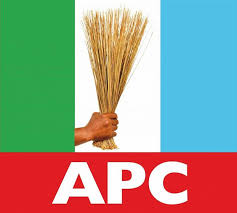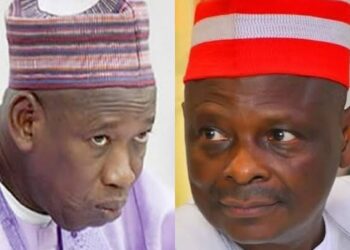In marking the end of its first year legislative session last week Thursday, June 11, 2020, President of the Ninth Senate, Senator Ahmad Lawan (APC Yobe North) and Spokesperson, Senator Ajibola Basiru (APC Osun Central), in separate statements, made the rescue of the nation’s economy from the doldrums, the central focus of actions. Taiye Odewale examines.
Lawan’s paradigm shift
Expectedly, the President of the Ninth Senate, Ahmad Lawan, in his 40- paragraph speech, emphasised the paradigm shift made by it and the Ninth House of Representatives as far as harmonious working relationship with the executive arm of government is concerned.
Lawan in the speech delivered in plenary to fellow Senators said: “Both the Ninth Senate and indeed, the Ninth National Assembly and the executive arm of government have decided to collaborate and partner for a harmonious working relationship.
“Today, there is a very good relationship, based on mutual respect, consultation, cooperation, collaboration and partnership. There is no doubt that this has proved to be beneficial to the people we represent.
“I commend the executive arm of government for the valuable partnership that has so far yielded improved service delivery to our citizens.
“A good working relationship is desirable and indeed imperative in order to achieve optimum, effective and efficient service delivery to the people. Equally important however, is the observance of the principle of separation of powers.
“We will continue to be guided by this principle in our relationship with other arms of government. Thus, we will continue to carry out our constitutional role of oversight on the executive arm of government.
“This is necessary in order to engender and guarantee efficiency in governance and to also protect the liberty of citizens. We will also be guided by the national interest”.
Specifically, Lawan in the speech dwelled more on collaborating with the executive arm of government in rescuing the nation’s economy from the doldrums.
NASS must work for Nigerians
His words: “Immediately after our inauguration, we adopted a well articulated Legislative Agenda. Our agenda is focused on ensuring that this Senate works for Nigerians; through various and timely legislative interventions, and other parliamentary functions.
“Our goals and targets were crystal clear, and we have remained resolute to achieve them. Our decisions have been collective, purposeful and patriotic. Today, we can say that, we have remained on track to delivering on our promises to the Nigerian people.
“One year ago, one of our major concerns and priorities was to change the Federal Government Budget cycle. Our concern then was our country needed to have a Budget cycle that will be regular, predictable and stable. We worked extra hours and days to ensure that the Budget 2020 was passed before the end of December 2019.
“It’s noteworthy that the passage of the 2020 appropriation has enabled the federal government to start the implementation of the budget from January 2020. It also created better environment for businesses in Nigeria to plan on their financial activities within the year.
“The senate successfully amended the Deep Off-Shore and Inland Basin Production Sharing Contracts Act Cap D3LFN 2004 (Amendment Bill 2009); which was specifically geared towards increasing our collectable revenues from proceeds of crude sales.
“The other areas of legislative interventions considered by the Senate were the passage of Medium Term Expenditure and Fiscal Strategy Paper MTEF/FSP 2020-2022; Public Procurement 2007 (amendment); Finance Bill 2019 (Nigeria Tax and Fiscal Law) (SB.140); Companies and Allied Matters Act, Cap C20 LFN 2004 (Repeal and Re-enactment) Bill 2019 (SB. 251).
“These legislative interventions have direct positive impacts on the economy of our country. As more revenues are earned by government, the capacity and ability of government to address the infrastructural deficits are enhanced.
“Today, the senate has passed the request of the executive on the revised budget 2020. The review of the budget 2020 is largely due to the adverse impact of COVID-19 pandemic on our revenues. As an oil dependent economy, the slump in the price of crude in the world market means that the revenues we earn cannot meet the planned expenditure.
“The low revenue from crude exports also means that there is need to explore other sources of funding the budget, hence the resort to foreign borrowing from bilateral and multilateral sources.
Need to approve loans
“In order to support and enable the government raise the necessary funds for national development, there were requests for approval to borrow, both from the domestic and foreign sources. We have approved foreign loans of about $28 billion in the last one year.
“We had ensured proper scrutiny for the desired projects and programmes of government, the conditions of the facilities; before approving such borrowing requests. The task ahead of us is to ensure tracking, monitoring and supervision of how the loans are applied. We must ensure that the target projects remain, and that there is value for money also.
“The current experience of low revenues to government also challenges us to think and evolve new or additional sources of funding government projects, especially, for the development of our infrastructure.
“While borrowing may be inevitable, we should also consider a Public Private Partnership (PPP) as a means of funding some of the government projects.
COVID 19 and our health facilities
“The COVID-19 Pandemic has revealed how weak our health infrastructure is. The pandemic has also brought with it a new reality in our lives and livelihoods. We are clearly exposed to economic vagaries and instability largely due to our dependence on crude exports.
“This dependence leaves our country vulnerable to the vicissitudes of the international oil market price. We therefore have to confront the challenge of diversifying our economy for more reliable revenues and stable economy.
“With a funding gap of over $14billion, the post COVID-19 period can face a recession and job losses by millions of our citizens. There is an urgency more than ever to explore more sources of revenues in addition to the crude. The diversification of our economy must remain a top priority in the subsequent years, from today.
“One means of diversifying our economy is the agricultural sector. The agricultural sector has the potential to provide employment and create wealth for our people. We should therefore consider all the possibilities in the sector. Equally important is the Solid Minerals sector.
“The present contribution of 0.03 percent to GDP by the sectors is simply unacceptable. The potentials of this sector to contribute to our revenue basket is enormous.
“Our committees on Agriculture and Rural Development and Solid Minerals and Steel Development had conducted Round table Discussions previously. The reports of the discussions have already been laid.
“We should therefore consider the reports and come up with necessary lines of legislative actions to enhance their contributions to our economy.
“In the next one year, we should focus on how to keep our economy from going into recession. This entails working together with executive arm of government to implement the Economic Sustainability Plan of the federal government. We have to ensure that the economy remains afloat, provides for our citizens sustainable means of livelihood.
“Our business concerns need intervention to keep being viable in order to protect jobs. We need to ensure that the various fiscal and monetary interventions provided in the revised 2020 budget, and particularly, the economic sustainability plan components, are implemented fully.
“Our priorities should continue to be on growth-enhancing, pro-poor expenditures and social sector investments.
Good interventions within a year
Apparently corroborating the Senate’s President assertion further in his own statement, the chairman, Senate Committee on Media and Public Affairs, Senator Surajudeen Ajibola Basiru , said the 9th National Assembly in its first year of legislative session , made required interventions on the nation’s economy resulting into new windows of revenues estimated by experts to be about N320billion per year.
He added that in furtherance of that, the federal lawmakers are also more than ready to give the much expected Petroleum Industry Bill (PIB) expeditious consideration anytime forwarded to them by the executive arm of government for the required repositioning of the petroleum sector for the benefits of the generality of Nigerians.
Sacrificially, according to him, “this as the serving 104 out of 109 senators, are still donating half of their salaries on monthly basis to fight the COVID-19 pandemic”.
Basiru, who in the statement titled: “The Ninth Senate and the one year after”, chronicled perceived achievements cum milestones made by the upper legislative chamber within the last one year in line with the earlier set legislative agenda to that effect.
According to him, the agenda titled: “A National Assembly that Works for Nigeria”, has to a very great extent, been serving as the compass and guiding principle legislatively and to intervene for both chambers of the National Assembly upon which constructive collaborations between them have been activated on national issues with required urgent solutions at different times for the benefits of Nigeria and Nigerians”.
Whether real or perceived, the achievements the 9th senate and by extension, Ninth National Assembly, claimed in its first year, would be clearer to Nigerians as it goes into the second leg of its four years legislative mandate.



